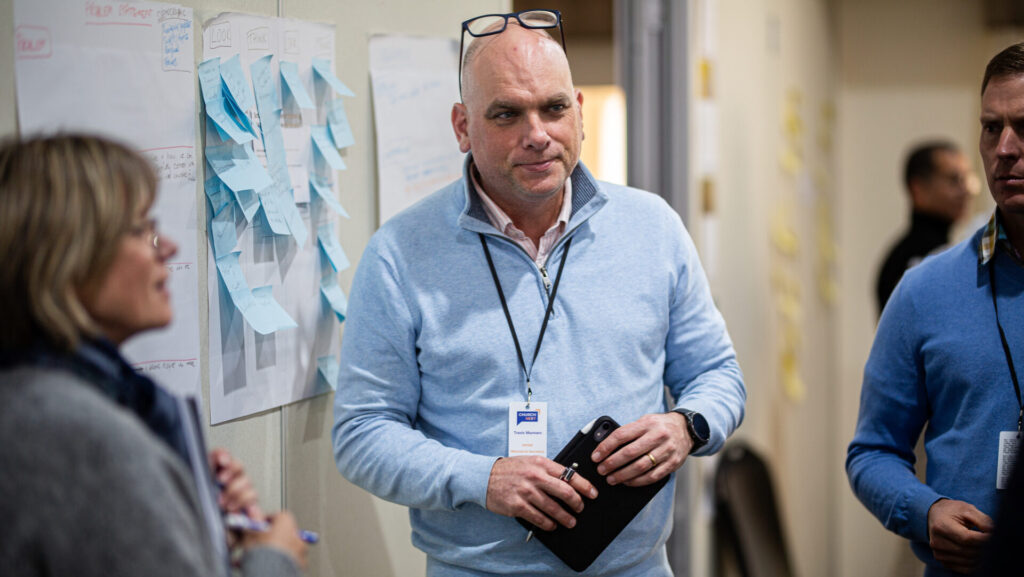Popular Bible app YouVersion has reached 250 million unique installs worldwide.
The app has Bible translations in more than 1000 languages, multiple English versions and functions that make verses and devotions easy to share. People using the app have read more than 11 billion chapters and listened to 2.1 billion audio chapters. YouVersion was one of the first 200 apps in Apple’s app store debut.
According to its creators, the most popular verse worldwide is Romans 8:28: “And we know that in all things God works for the good of those who love him, who have been called according to his purpose.”
In light of the app’s popularity, Adventist Record decided to ask Dr David Tasker, Avondale Seminary lecturer in Old Testament, a few questions about the Bible and its continuing relevance around the world today.
R: Society would have us believe that the Bible is no longer relevant but these statistics show that people are engaging more with the Bible online.
DT: Maybe this is just another case of a few noisy people who think they are speaking for everyone, when in fact they are not. There seems to be a conservative swing among younger people, and it seems they wish to connect to things spiritual, to God, and to the wisdom of Scripture—without “church” getting in the way. But that is only a part of the story. When you see where this app has been opened, it is simply impressive. Nepal, China, the Middle East, closed countries—everywhere. It seems like a flood of light is about to be poured out on the earth.

R: Is there a difference in using an app like this and reading a physical Bible?
DT: We all have different ways of appreciating or understanding the Bible, so “one-size” does not fit all. Some prefer opening a book, and others prefer reading from an electronic device. You cannot force people to read in a way they are not accustomed to. And if that is the only way some people can obtain a copy of the Scriptures, then differences between paper and electrons cease to become an issue.
R: How do you think these sorts of apps can change the way we read the Bible?
DT: It may not change it for some or even many people. But for many more, the apps are opening up for them something they would never have otherwise been in contact with. This has to be a positive move.
R: What are the benefits of an app like this? Are there any drawbacks/dangers?
DT: It puts the words of Scripture into the hands of many more people, worldwide, than if we just relied on “physical” Bibles. One possible danger exists for all forms of Bible—that it is taken for granted or skimmed over as if it were just another item to flick through. The Bible is best read slowly and deliberately—to absorb its meaning and to hear the voice of God speaking to the heart.
R: Do you see this as a positive trend?
DT: Why not? Before Jesus comes again, the world must be warmed and warned: warmed towards God and warned about God’s plan to step in to take back control of a messed up world. And while there are many encouraging advances in the work of spreading the gospel, we as a community of faith are not really making much of an impact on the world. Hollywood is doing a better job of warning the world of an impending end to life as we know it, while at the same time making God out to be a monster. But the Word of God is living and powerful, and if 250 million extra people are reading (and sharing) the Bible in a form that they understand better, that has to make an eternal impact on many levels. [pullquote]
R: In your study of the Bible what stands out to you as to why it is so relevant?
DT: The more I read and understand it, the more I am convinced that God loves me and has a purpose for me being here. It also speaks loudly that evil will not have free reign forever, but will be stopped in its tracks and evicted from our midst, and that God is especially looking out for the “little” people—those whom life has treated poorly. The champion, and upon whom the spotlight falls in all of this, is Jesus. He craves our friendship and can’t wait to see us again soon—face to face.
R: Anything else you’d like to add?
DT: Maybe our biggest challenge in all of this is to learn how to speak (and to listen) to our generation. We have become skilled at speaking to ourselves, and we persist in using words and expressions that only an (older) Adventist audience would understand. It is high time for us to break out of that tradition and to read the Bible with fresh eyes.






